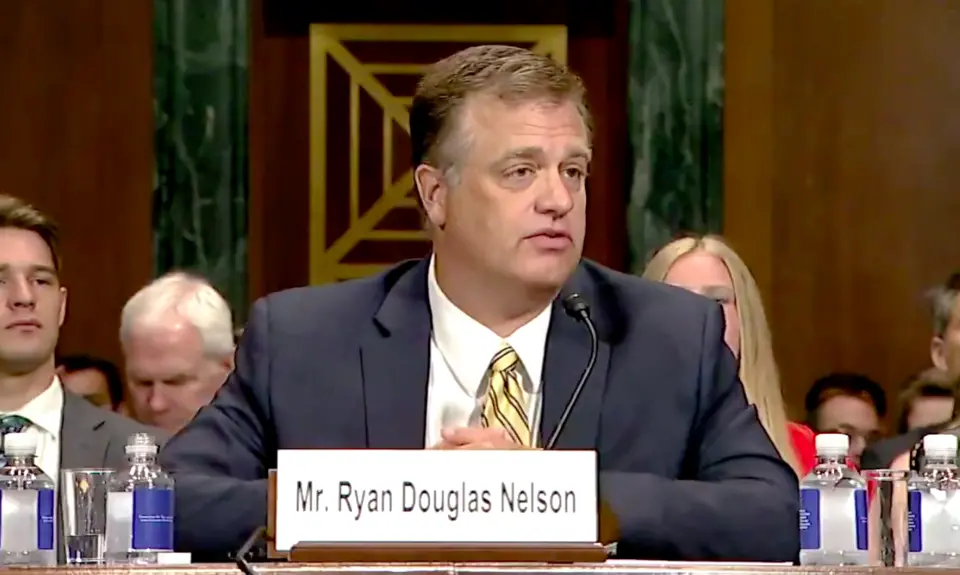“Confirmed Judges, Confirmed Fears” is a blog series documenting the harmful impact of President Trump’s judges on Americans’ rights and liberties. Cases in the series can be found by issue and by judge at this link.
In a June 2020 dissent, Trump judge Ryan Nelson would have allowed California officials to keep people dangerously exposed to COVID-19 while in jail. He wrote that compliance with a lower court order to protect their lives would cause “irreparable harm” to the government. The case was Ahlman v. Barnes.
Individuals in the Orange County Jail sued government officials, alleging Eighth Amendment violations and seeking an injunction directing them to implement specific mitigation efforts to prevent the spread of COVID-19. These included: providing adequate spacing of six feet or more between incarcerated people; giving each incarcerated person an individual supply of hand soap and paper towels sufficient to allow frequent hand washing and drying each day; providing each individual with effective hand sanitizer; and immediately testing anyone with symptoms of COVID-19.
But the plaintiffs testified that officials housed multiple people in the same room with beds less than six feet apart; placed some people in overcrowded holding units; let quarantined individuals use the same common spaces as the general population; failed to provide enough soap for hand-washing; and provided cloth masks that in some cases were not replaced for weeks or that were made from sheets stained with blood and feces. The district court judge issued the requested injunction in late May, noting that more than 350 incarcerated people in the jail had tested positive, including several dozen who had contracted the virus just within the previous two weeks.
Orange County officials quickly asked the Ninth Circuit to stay that injunction. A divided panel of the circuit declined to do so, finding that the defendants had not met their burden to show that compliance would cause them irreparable harm. In fact, as the majority opinion pointed out, part of the defense at the district court level had included a sworn statement from official Joseph Balicki that the county was already voluntarily taking “all” of the requested measures. For the government to now argue on appeal that those same measures were so impractical as to cause irreparable harm made no sense.
In his dissent, Judge Nelson downplayed the inconsistency, dismissing the sworn declaration as simply “inartfully crafted.” But the majority countered that this “blinks reality,” with “no doubt about the message Balicki intended to convey to the district court.”
Judge Nelson also deemed the injunction legally flawed for imposing obligations beyond CDC guidelines, approvingly citing a Sixth Circuit opinion. The district court had cited the plaintiffs’ testimony and found as a factual matter that jail officials were “not complying meaningfully” with the guidelines. In addition, he ruled that those guidelines were a floor, not a ceiling, of an adequate response for a system that already had more than 350 cases of infection with a recent rapid increase. The Ninth Circuit majority concluded that the defendants had failed to show the lower court’s finding “clearly erroneous” or that its injunction in response to those findings was an “abuse of discretion.”
It is worth noting that the same week the Ninth Circuit declined to issue a stay, a Sixth Circuit panel took the other approach. The difference: The three-judge panel in that case had two Trump judges rather than one.
